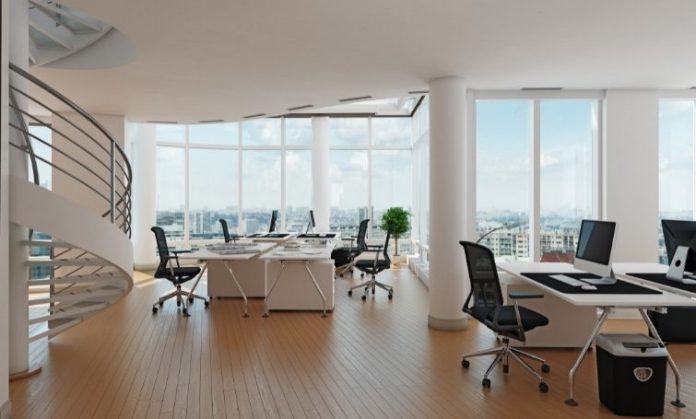Since the pandemic, the way in which we work has drastically changed. Workplaces and offices around the world have been forced to close, meaning many people who once worked a rigid 9-5 with all the bells and whistles have had to adapt and work from home. Employers have had to tackle the opinions of their workers, but they’ve also had to question whether or not an office space is actually needed.
The pandemic turned life as we knew it on its head, and now it’s seemingly coming to end with the vaccine rollout, many businesses will be starting the process of picking up the pieces. Along with the prospect of flexible working, they will also be looking at their current setup and whether or not it’s effective.
Leasing a commercial space is a big expense and is not something to be taken lightly. If you’re a business owner and are wondering if you actually need an office space post-pandemic, or if you’re a start-up company and are looking at the next steps to grow your business, here are some things you need to consider when it comes to if you actually need an office space.
How Do Your Employees Work Best?
The first thing you need to consider is how your team works. Over the course of the pandemic, most white-collar workers have had to work from home. Some have preferred it because of the quieter environment, lack of commuting and improved work/life balance. Others have found it difficult due to social isolation and lack of facilities that are otherwise available at work.
Before committing to one option or another, you should first ask your staff what they think of working from home versus working in an office. It’s important to ask the opinion of those who make your business function before taking upon yourself to act. After all, a business is nothing without its employees, so make sure you determine how your team works best before pressing ahead.
What Equipment Do You Have?
Some companies are web-based and require little more than a computer and an internet connection to work at full capacity. In other instances, employees need computers, printers and other equipment to fulfil their job roles.
Consider how much space is required for employees to perform their job in the office, and then determine whether it’s fair to assume their home takes on a similar office design in terms of available space. No employee should have to change the way their house functions simply to accommodate work.
If a computer and Wi-Fi is all that’s needed, you might be able to get away with working from home, but if additional equipment is required, it’s not right to burden your employees with finding space at home to fit in the equipment that’s needed.
How Big is Your Team?
Whilst asking your employees what their opinion is, consider how many employees you actually have, too. It can be hard to coordinate lots of people without having them in one place, so if you have a large team that work collectively and where each member is reliant on the other, it could be best to have an office. This means that employees can clearly see when others are available and have discussions with them on a timely basis, rather than waiting for them to come online and messages getting lost on the internet.
Smaller teams of 10 people or less, or teams who do not work hand in hand could effectively work from home, but it depends on the team.
Summary
In addition to the above points, you also need to think about if your business is customer facing and what your financial standing is. A combination of all these factors will decide whether or not you can ditch the office and adopt a new way of working, or if the traditional way is the best format for your company.



























